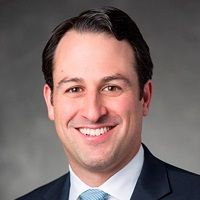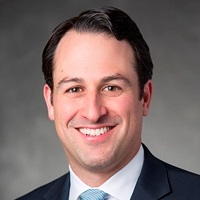The Four Key Pillars of Wealth Management of the Future
The role of the family office is evolving with the Great Wealth Transfer and tech advancements, among other issues. This is how financial professionals can manage the shifts.


Profit and prosper with the best of Kiplinger's advice on investing, taxes, retirement, personal finance and much more. Delivered daily. Enter your email in the box and click Sign Me Up.
You are now subscribed
Your newsletter sign-up was successful
Want to add more newsletters?

Delivered daily
Kiplinger Today
Profit and prosper with the best of Kiplinger's advice on investing, taxes, retirement, personal finance and much more delivered daily. Smart money moves start here.

Sent five days a week
Kiplinger A Step Ahead
Get practical help to make better financial decisions in your everyday life, from spending to savings on top deals.

Delivered daily
Kiplinger Closing Bell
Get today's biggest financial and investing headlines delivered to your inbox every day the U.S. stock market is open.

Sent twice a week
Kiplinger Adviser Intel
Financial pros across the country share best practices and fresh tactics to preserve and grow your wealth.

Delivered weekly
Kiplinger Tax Tips
Trim your federal and state tax bills with practical tax-planning and tax-cutting strategies.

Sent twice a week
Kiplinger Retirement Tips
Your twice-a-week guide to planning and enjoying a financially secure and richly rewarding retirement

Sent bimonthly.
Kiplinger Adviser Angle
Insights for advisers, wealth managers and other financial professionals.

Sent twice a week
Kiplinger Investing Weekly
Your twice-a-week roundup of promising stocks, funds, companies and industries you should consider, ones you should avoid, and why.

Sent weekly for six weeks
Kiplinger Invest for Retirement
Your step-by-step six-part series on how to invest for retirement, from devising a successful strategy to exactly which investments to choose.
As demographic shifts catalyze intergenerational wealth transfers in unpredictable markets, the demand for family offices to manage the affairs of affluent families is on the rise. The challenge is to remain effective and relevant amid shifting economic, technological and social landscapes — not to mention family dynamics.
The key is a commitment to evolution. Families are not static, and the role of the family office goes beyond money management to also help express values, protect legacies, educate the next generation and navigate change.
Here are key areas of focus that can help wealth management professionals support families in building a future on their own terms:
From just $107.88 $24.99 for Kiplinger Personal Finance
Become a smarter, better informed investor. Subscribe from just $107.88 $24.99, plus get up to 4 Special Issues

Sign up for Kiplinger’s Free Newsletters
Profit and prosper with the best of expert advice on investing, taxes, retirement, personal finance and more - straight to your e-mail.
Profit and prosper with the best of expert advice - straight to your e-mail.
1. Governance: Balancing structure with flexibility
While many wealthy families create their own smaller organizations with the express purpose of serving one close-knit group of stakeholders, it’s important to shift the focus from the internal to the external, keeping pace with generational and cultural shifts as well as legal and financial market developments.
A formal mission statement is often the first step to articulate goals while building a framework that allows for flexibility and evolution. There should be clear guidelines for navigating decision-making, wealth distribution, investment strategies and even family dynamics.
Make sure there are processes to monitor trends, get feedback from each generation, network and update structures so the family office can stay focused while continuing to evolve. For example, while not often talked about, it is important to specify the acceptable reasons, consequences and process for family members to leave the family office if they wish.
2. Investment capabilities: Maximizing opportunities
Investment capabilities are a central pillar for family offices, which are typically long-term investors seeking to diversify return and risk. Today, there are more ways than ever to deploy capital, including alternatives like venture capital, private equity, private credit and real estate. It’s imperative to stay at the forefront of market trends, plug into robust data sources, build or access a consolidated reporting platform and develop a rigorous approach to deal sourcing and due diligence.
Family offices also should look to invest in technology or partner with third-party providers that offer consolidated portfolio analytics and reporting. This provides a comprehensive picture of the total balance sheet and asset allocation, which is essential for effective wealth management. Family members need a true 360-degree view of their financial world to make effective decisions and build new opportunities.
3. Technology and security: Embracing the future
As family offices face increasing pressure to modernize, artificial intelligence (AI) is emerging as a critical tool to enhance efficiency and streamline areas such as client communication, reporting, deal sourcing and investment analysis — potentially freeing up staff to focus on client engagement. That said, it's crucial to fully understand the security implications, ensure data protection and maintain high fiduciary standards. Test new tools responsibly with non-sensitive or dummy data and stay transparent about any AI usage among clients and peers.
At the same time, family offices are increasingly facing cyberattacks that can affect their future stability. To help mitigate threats like identity theft, online scams, malware and fraud, offices should implement foundational practices like automatic updates, unique strong passwords, multifactor authentication and careful handling of links and attachments. In a rapidly evolving digital landscape, staying abreast of technological advancements and prioritizing cybersecurity are essential to remain relevant and secure.
4. Human guidance: Hiring the right people
Despite the potential of technology, there are key areas in wealth management where technology cannot replace human expertise — such as building an institutional-quality team or developing an effective financial education program.
Finding the right talent to support a family office is critical, from identifying which roles should be kept in-house to forming effective external partnerships. Family offices need a healthy pipeline to invite, train and promote fresh talent that can support the current and evolving needs of the family. It's essential to plan for succession and delegate responsibilities to younger staff members to ensure continuity, mitigate key-person risk and help smooth generational divides. Additionally, as academic organizations have traditionally de-emphasized financial literacy, family offices have an opportunity to fill this gap and help prepare younger generations to carry the torch.
It’s time for a more future-centric focus in managing family wealth with a proactive approach to governance, investment strategies and technology adoption. Forward-thinking family offices must define clear policies and develop an adaptable team and infrastructure that can continue to add value as an indispensable partner for generations to come.
This material has been prepared for informational purposes only. It does not provide individually tailored investment advice. It has been prepared without regard to the individual financial circumstances and objectives of persons who receive it. Morgan Stanley Smith Barney LLC (“Morgan Stanley”) recommends that investors independently evaluate particular investments and strategies, and encourages investors to seek the advice of a Morgan Stanley Financial Advisor. The appropriateness of a particular investment or strategy will depend on an investor’s individual circumstances and objectives.
The term “Family Office Resources” is being used as a term of art and not to imply that Morgan Stanley and/or its employees are acting as a family office pursuant to Investment Advisers Act of 1940.
Morgan Stanley Smith Barney LLC (“Morgan Stanley”), its affiliates and Morgan Stanley Financial Advisors and Private Wealth Advisors do not provide tax or legal advice. Clients should consult their tax advisor for matters involving taxation and tax planning and their attorney for matters involving trust and estate planning, charitable giving, philanthropic planning and other legal matters.
Artificial intelligence (AI) is subject to limitations, and you should be aware that any output from an IA-supported tool or service made available by the Firm for your use is subject to such limitations, including but not limited to inaccuracy, incompleteness, or embedded bias. You should always verify the results of any AI-generated output.
Morgan Stanley Wealth Management is the trade name of Morgan Stanley Smith Barney LLC, a registered broker-dealer in the United States.
This article is provided for informational purposes only and no representation of any kind is intended with respect to the practices described. Nothing in this article should be construed as a cybersecurity evaluation. Morgan Stanley is not responsible for determining what cybersecurity best practices are most appropriate for your needs. While efforts have been made to assure the completeness and accuracy of the information as of the date of the presentation, no representation is made that such information is accurate or complete, and Morgan Stanley undertakes no obligation to update the information as its practices change. Reproduction, transmission, dissemination, or other use without authorization or attribution is prohibited. CRC 4010095 - 11/24
Interested in more information for financial professionals? Sign up for Kiplinger’s new newsletter, Adviser Angle.
Related Content
- Wealth Is More Than Just Your Money: How to Manage It All
- What Is Wealth? Shifting Values Change What It Means to Many
- How Might the Great Wealth Transfer Change Society?
- Five Financial Strategies for High-Net-Worth Individuals
- Eight Types of Trusts for Owners of High-Net-Worth Estates
Profit and prosper with the best of Kiplinger's advice on investing, taxes, retirement, personal finance and much more. Delivered daily. Enter your email in the box and click Sign Me Up.

Daniel DiBiasio is a Managing Director and the Head of Morgan Stanley Private Wealth Management, a division that oversees a portfolio of specialty businesses serving ultra-high-net-worth individuals and families. Daniel’s responsibilities encompass the domestic ultra-high-net-worth business, International Wealth Management, Wealth Management Canada, Global Sports and Entertainment, Client and Field Engagement, Family Office Resources and Morgan Stanley Family Office. These specialty businesses are thoughtfully integrated into each client experience to address the complexities of managing significant wealth in pursuit of personal and financial goals.
-
 Dow Leads in Mixed Session on Amgen Earnings: Stock Market Today
Dow Leads in Mixed Session on Amgen Earnings: Stock Market TodayThe rest of Wall Street struggled as Advanced Micro Devices earnings caused a chip-stock sell-off.
-
 How to Watch the 2026 Winter Olympics Without Overpaying
How to Watch the 2026 Winter Olympics Without OverpayingHere’s how to stream the 2026 Winter Olympics live, including low-cost viewing options, Peacock access and ways to catch your favorite athletes and events from anywhere.
-
 Here’s How to Stream the Super Bowl for Less
Here’s How to Stream the Super Bowl for LessWe'll show you the least expensive ways to stream football's biggest event.
-
 Dow Leads in Mixed Session on Amgen Earnings: Stock Market Today
Dow Leads in Mixed Session on Amgen Earnings: Stock Market TodayThe rest of Wall Street struggled as Advanced Micro Devices earnings caused a chip-stock sell-off.
-
 We're 62 With $1.4 Million. I Want to Sell Our Beach House to Retire Now, But My Wife Wants to Keep It and Work Until 70.
We're 62 With $1.4 Million. I Want to Sell Our Beach House to Retire Now, But My Wife Wants to Keep It and Work Until 70.I want to sell the $610K vacation home and retire now, but my wife envisions a beach retirement in 8 years. We asked financial advisers to weigh in.
-
 How to Add a Pet Trust to Your Estate Plan: Don't Leave Your Best Friend to Chance
How to Add a Pet Trust to Your Estate Plan: Don't Leave Your Best Friend to ChanceAdding a pet trust to your estate plan can ensure your pets are properly looked after when you're no longer able to care for them. This is how to go about it.
-
 Want to Avoid Leaving Chaos in Your Wake? Don't Leave Behind an Outdated Estate Plan
Want to Avoid Leaving Chaos in Your Wake? Don't Leave Behind an Outdated Estate PlanAn outdated or incomplete estate plan could cause confusion for those handling your affairs at a difficult time. This guide highlights what to update and when.
-
 I'm a Financial Adviser: This Is Why I Became an Advocate for Fee-Only Financial Advice
I'm a Financial Adviser: This Is Why I Became an Advocate for Fee-Only Financial AdviceCan financial advisers who earn commissions on product sales give clients the best advice? For one professional, changing track was the clear choice.
-
 Nasdaq Slides 1.4% on Big Tech Questions: Stock Market Today
Nasdaq Slides 1.4% on Big Tech Questions: Stock Market TodayPalantir Technologies proves at least one publicly traded company can spend a lot of money on AI and make a lot of money on AI.
-
 Quiz: Are You Ready for the 2026 401(k) Catch-Up Shakeup?
Quiz: Are You Ready for the 2026 401(k) Catch-Up Shakeup?Quiz If you are 50 or older and a high earner, these new catch-up rules fundamentally change how your "extra" retirement savings are taxed and reported.
-
 I Met With 100-Plus Advisers to Develop This Road Map for Adopting AI
I Met With 100-Plus Advisers to Develop This Road Map for Adopting AIFor financial advisers eager to embrace AI but unsure where to start, this road map will help you integrate the right tools and safeguards into your work.